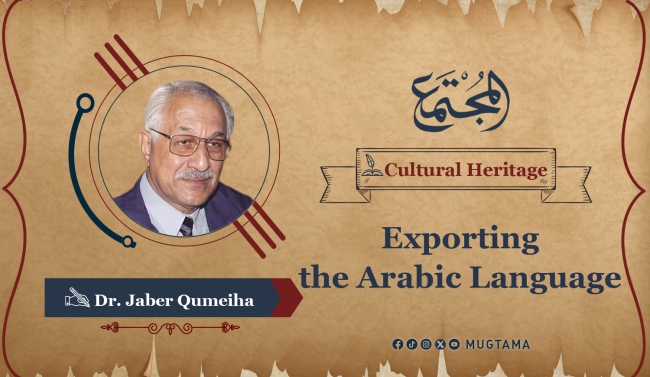By this, I mean teaching the Arabic language to non-Arabic speaking peoples through the radio, especially the peoples of the Third World, and more specifically, those with a high proportion of Muslims. It is well known that teaching a language involves transmitting its culture, heritage, and values to others.
Psychological Connection
It also creates a psychological bond between the sending country and the recipients. Given the importance and significance of this endeavor, it must be undertaken by a specialized joint body from all Arab countries, with serious monitoring of the effects and results of this "export."
The Egyptian Experience
Dr. Ibrahim Imam talks to us about the Egyptian experience in this field, saying: "It is a successful experiment that came in response to the requests of thousands of listeners in Asia and Africa. The study of the project continued from 1957 until 1966, with the participation of several bodies, such as the Ministry of Higher Education, the Ministry of Education, and the Supreme Council for Islamic Affairs."
Thus, the project began with a confident and serious start based on a scientific method to spread the Arabic language and strengthen religious ties between Egypt and other Islamic peoples, enabling them to read the Quran and understand aspects of Islamic religion, including jurisprudence, legislation, principles, and hadiths.
Implementation
The plan began by using English as an intermediary language. The project involves broadcasting lessons accompanied by explanatory books sent in advance to listeners according to their addresses. Each listener has a code number used in correspondence.
Lessons are broadcast in three stages, leading the listener to an intermediate level of language proficiency. Each stage spans a year and consists of fifty-one lessons. The project continuously evolves, paying attention to grammatical rules and using some verses, hadiths, and poetry as evidence and examples.
In 1968, teaching began using French as an intermediary language for listeners in West Africa, Algeria, Europe, and other regions.
Success and Expansion
The experience is successful and, therefore, replicable. Efforts should be intensified across the entire Arab world, and commercial institutions should be allowed to contribute to this project with financial support.
Ideally, the experience should, as a next step, expand to teaching the Arabic language through satellite TV channels, thereby combining both radio and television in performing this significant task.







